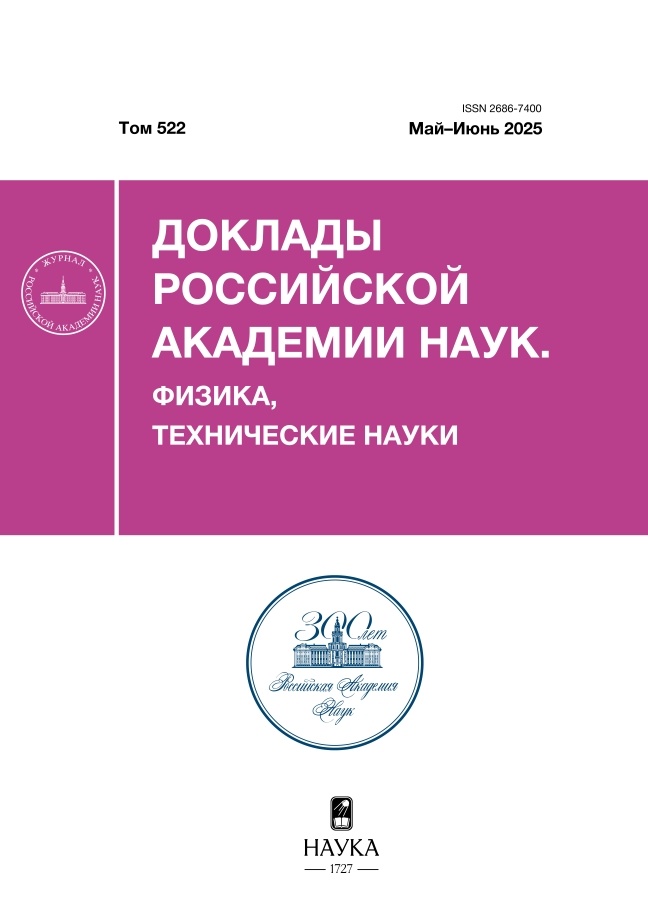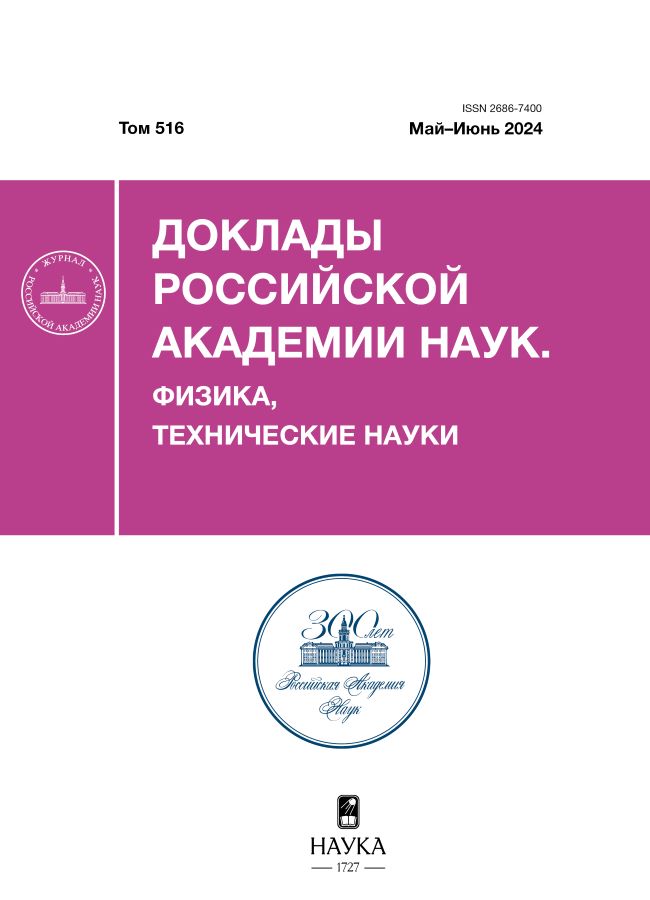Thermophysical and gas dynamics problems of anti-meteorite protection for modern spacecrafts
- Authors: Kim V.V.1, Martynenko S.I.1, Ostrik A.V.1, Lomonosov I.V.1
-
Affiliations:
- Federal Research Center of Problems of Chemical Physics and Medicinal Chemistry, Russian Academy of Sciences
- Issue: Vol 516, No 1 (2024)
- Pages: 23-27
- Section: ФИЗИКА
- URL: https://transsyst.ru/2686-7400/article/view/651781
- DOI: https://doi.org/10.31857/S2686740024030032
- EDN: https://elibrary.ru/KALDPX
- ID: 651781
Cite item
Abstract
The results of numerical calculations of the destruction of the protective shields of the spacecraft under the action of a micrometeorite impact are presented. A gas-dynamic numerical simulation of the process of high-speed penetration by micrometeorite of a spaced protective shield of a spacecraft has been carried out, taking into account fragmentation and the formation of a cloud of fragments after passing through the protective shield. In a three-dimensional formulation, the calculated configurations of the cloud of fragments of the impactor and the target for the initial velocities of the impactor up to 10 km/s are obtained. The high efficiency of the used design of a protective screen made of multidirectional corrugated grids as a means of fragmentation and dispersion of the kinetic energy of impact of small high-speed particles, reducing the average pressure pulse on the protected device by two to three orders of magnitude, is shown.
Full Text
About the authors
V. V. Kim
Federal Research Center of Problems of Chemical Physics and Medicinal Chemistry, Russian Academy of Sciences
Author for correspondence.
Email: kim@ficp.ac.ru
Russian Federation, Chernogolovka, Moscow Region
S. I. Martynenko
Federal Research Center of Problems of Chemical Physics and Medicinal Chemistry, Russian Academy of Sciences
Email: kim@ficp.ac.ru
Russian Federation, Chernogolovka, Moscow Region
A. V. Ostrik
Federal Research Center of Problems of Chemical Physics and Medicinal Chemistry, Russian Academy of Sciences
Email: kim@ficp.ac.ru
Russian Federation, Chernogolovka, Moscow Region
I. V. Lomonosov
Federal Research Center of Problems of Chemical Physics and Medicinal Chemistry, Russian Academy of Sciences
Email: kim@ficp.ac.ru
Corresponding Member of the RAS
Russian Federation, Chernogolovka, Moscow RegionReferences
- Щербаков И.А. Некоторые приоритетные результаты, полученные в области физики в 2019 году (из отчетного доклада академика-секретаря ОФН РАН) // Доклады РАН. Физика, технические науки. 2020. Т. 492. № 1. С. 4–53.
- Смирнов И.В., Петров Ю.В. О временных характеристиках разрушения при высокоскоростных испытаниях // Доклады РАН. Физика, технические науки. 2020. Т. 493. № 1. С. 62–65.
- Агурейкин В.А., Анисимов С.И., Бушман А.В., Канель Г.И., Карягин В.П., Константинов А.Б., Крюков Б.П., Минин В.Ф., Разоренов С.В., Сагдеев Р.З., Сугак С.Г., Фортов В.Е. Теплофизические и газодинамические проблемы противометеоритной защиты космического аппарата “ВЕГА” // ТВТ. 1984. Т. 22. № 5. С. 964–982.
- Whipple F.L. Meteorites and space travel //Astronomical Journal. 1947. No. 1161. P. 131.
- Герасимов А.В., , Экран для защиты космического аппарата от высокоскоростного ударного воздействия частиц космической среды // Патент РФ RU 2623782 C1. 2016.
- Добрица Д.Б., Пашков С.В., Моделирование процесса взаимодействии высокоскоростного ударника с трехслойной разнесенной комбинированной преградой // Космические исследования. 2020. Т. 58. № 2. С. 131–137.
- Fortov V.E., Kim V.V., Lomonosov I.V., Matveichev A.V. Ostrik A.V. Numerical modeling of hypervelocity impacts // Int. J. Impact Eng. 2006. V. 33(1–12). P. 244.
- Mintsev V., et.al. Non-Ideal Plasma and Early Experiments at FAIR: HIHEX – Heavy Ion Heating and Expansion // Contrib. Plasma Phys. 2016. V. 56(3-4). P. 281–285. https://doi.org/10.1002/ ctpp.201500105
- Lomonosov I.V. Multi-phase equation of state for aluminum // Laser and Particle Beams. 2007. V. 25. P. 567–584.
- Ломоносов И.В. Уравнения состояния сапфира, кремнезема, периклаза и рутила // ТВТ. 2023. Т. 61. № 3. С.473–476. https://doi.org/10.31857/S004036442303016X
Supplementary files















